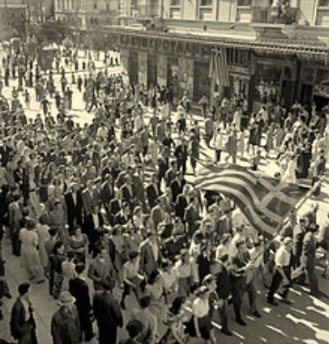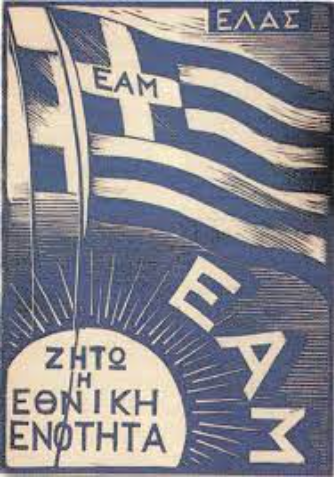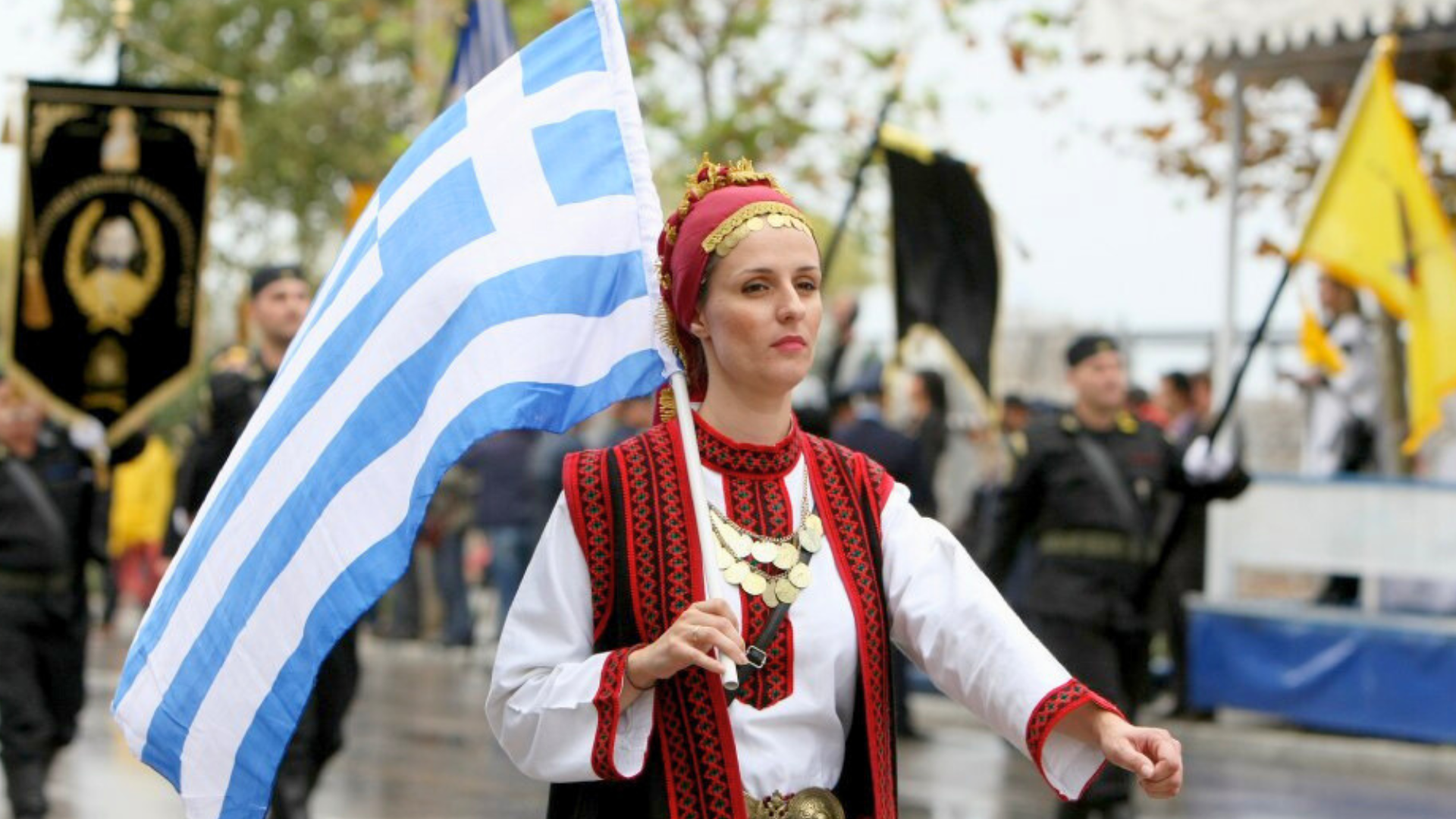Stefanos Periharos-Drizos, a 63-year-old married, father-of-two, has been to many October 28th celebrations, including viewing the yearly procession of school children such as his own when they were younger.
He feels that the annual October 28th, ‘OXI’ Day, Greek national holiday is essentially a tribute to the Greek people – the ‘folks’ – rather than an acknowledgment of previous, or current, Greek political parties in power.
Born in Athens, with a heritage from Meligala, Messinia in the Peloponnese,
Stefanos’ views on October 28th are influenced by his historic frame of reference. His parents and acquaintances were part of Greece’s National Liberation Front (EAM) who were “an alliance of various political parties and organisations which fought to liberate Greece from Axis Occupation.”


The basis of the October 28th National Holiday began when, in the early hours of the 28th October 1940, the then-Greek Prime Minister Ioannis Metaxas declared ‘OXI’ (NO) to the Italian ambassador.
“Metaxas’ ‘OXI’ did not occur immediately, but after negotiations that had been going on for a while with other fascist governments beforehand,” Stefanos says.
Nonetheless, the Italian ambassador – a representative of Mussolini – on October 28th in 1940, expected confirmation from Prime Minister Metaxas for Mussolini’s fascist army to have access into and through Greece. This was refused by Metaxas, with the Greek people’s support.

“OXI Day is a celebration purely of the people for the people of Greece. No one guided or guides us in this. As Greeks we’re proud of our resistance to fascist bullying. We demanded our independence on this occasion – but also on a few others,” Stefanos expounds.
“For example, in 1821 with our liberation from the Ottomans thanks to patriotic leaders such as Kapodistrias, Kolokotronis, Karaiskakis, etc. And in 1944 with the Mountain Government (a Communist Party-dominated government established in Greece in 1944 in opposition to both the collaborationist and to the royal government-in-exile in Cairo).
“Apart from the 28th October 1940, these are the ‘other’ occasions in which the Greek people have been solely independent – not controlled by foreign interests such as those of the British and then the Americans and their Greek lackeys.”
I point out that upon hearing of Metaxa’s refusal to bow down to the Italian fascists, Greeks of all political persuasions were brought together in support of this ‘OXI’, showing unity.
Stefanos pauses and states, “not all Greeks, because many of them were locked up, exiled on the xeronisia (barren islands serving as prisons) and it wasn’t until the following year when more manpower was needed for the war front that these, mainly communists, escaped to fight for Greece’s independence.”
Proudly, he adds, “We, the Greeks, resisted the Axis fascist forces for more than triple the time of any other country before eventually being occupied; for 219 days, from October 28, 1940 to June 1941.
“[…] we must continue to celebrate the 28th October, the ‘OXI’ of all Greeks. If you let your history fade away, you have no memory of your culture. Our memory as Hellenes includes that we gave civilisation to all the world.”

‘OXI Day shows we are brave’
Vicky Nikolakopoulos, in her 50’s, is a Greek Australian who spends her time between Greece and Australia, particularly in the last few decades.
“The 28th of October National Holiday – OXI Day – shows who we are as Greeks: proud, patriotic, brave, and independent thinkers; the latter trait getting us into trouble, as we don’t usually unite. But for OXI Day we did, and do, just that. All of us – from our Prime Minister Metaxas back then in 1940 (although a dictator, a true patriot), down to villagers and urbanites of all ages,” Vicky says.
She expresses her enjoyment watching the October 28th parades in Greece.
“It really moves me how people of all ages get out into the streets and essentially celebrate our love of independence,” Vicky says.

She adds that living in Greece has made her more aware of global history and politics which overall, didn’t seem part of her world in Australia.
“History here is everywhere. For example, in the importance of the olive trees of my relatives in their village. And not in the olives as… a ‘trendy’ hors d’oeuvres, but because in our history, we experienced much poverty and even starvation as a people, due to foreign occupations,” she says.
“Growing up in Australia, in the new world, the ‘lucky country,’ it took me a while to fathom why my parents were always going on about the importance of celebrating Greek historical events. But now I know why and feel it in my core, through being part of national celebrations like the 28th of October.

“I’m proud to be Greek and Greek Australian, and for me, the 28th of October is one of these symbolic events to be reminded, on a national and community level, of this love of freedom, of our culture, our history, our traditions, our uniqueness dating back from Antiquity.”
Regarding Greeks in Greece or Australia who choose to ignore the significance of October 28th, Vicky declares: “You can’t and shouldn’t ignore your history – which includes being united as Greeks regardless of political views. You know that old saying: ‘Divide and conquer’? As Greeks we should make sure we don’t allow disunity among us to occur – regardless of economic class. October 28th, OXI Day, serves as an important reminder of our bravery and bond as Greeks in the face of all that we have been through and is particularly relevant in today’s complicated and divisive world.”
